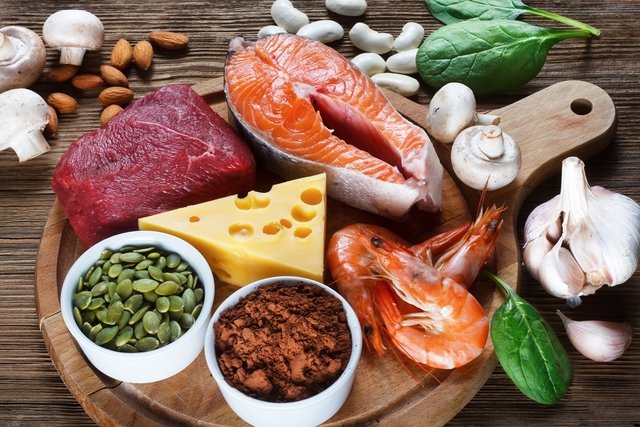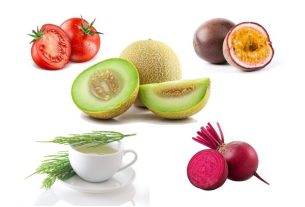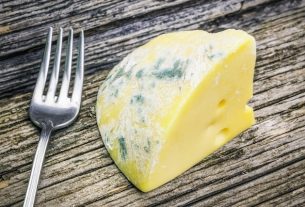Zinc is a fundamental mineral for health, because it participates in the activity of more than 300 enzymes and acts in the formation of proteins, maintaining the functions of the brain and immune system, and improving wound healing, for example.
The main sources of zinc are foods of animal origin, such as oysters, beef and offal, such as liver and heart. This mineral is also present in foods of plant origin, such as whole grains, legumes and oilseeds.
Situations such as pregnancy, Crohn’s disease or bariatric surgery can cause zinc deficiency in the body. Therefore, in these cases, the use of supplements such as chelated zinc or zinc oxide may be recommended by the doctor or nutritionist.

What is it for
The main health benefits of zinc are:
1. Strengthens the immune system
Zinc strengthens the immune system, because it participates in the development and maintenance of the functions of interleukins, macrophages and T and B lymphocytes, cells that protect the body against diseases caused by viruses, bacteria and fungi.
2. Helps prevent diabetes
Zinc participates in the production, storage and release of insulin in the body, the hormone responsible for balancing blood glucose levels, helping to prevent insulin resistance and type 2 diabetes.
3. Improves healing
Due to its antioxidant and anti-inflammatory action, zinc improves the healing of surgical wounds and diabetic foot wounds, small wounds and ulcers that can appear on the feet of people with uncontrolled diabetes and that can cause infections. Understand better what diabetic foot is.
Furthermore, zinc also improves healing, because it participates in the production and improves the adhesion of collagen to the skin, which is a protein responsible for ensuring firmness and giving elasticity to the skin.
4. Maintains skin health
Zinc maintains skin health because it fights excess free radicals in the body, one of those responsible for damaging healthy skin cells, preventing premature aging.
Furthermore, zinc participates in the production of collagen, preventing the appearance of wrinkles and sagging skin.
5. Promotes increased muscle mass
Zinc participates in the production of testosterone, the hormone that stimulates performance and physical strength, promoting the maintenance or increase of muscle mass in men and women.
6. Improves memory
Zinc participates in the maintenance of cognitive functions, in addition to protecting the cells of the nervous system against free radicals, improving memory, attention, focus and the learning process.
7. Helps treat pimples
Because it has anti-inflammatory and healing properties, zinc helps in the treatment and healing of pimples. Therefore, this mineral can be recommended, in supplement form, to complement acne treatment.
However, higher quality scientific studies are still needed to prove the possible benefits of zinc supplements in treating acne.
8. Helps with the baby’s development
Zinc is a nutrient used by the body during rapid growth phases, being important for the formation and development of the baby during pregnancy, as well as for the growth of children and adolescents.
9. Strengthens hair
Zinc has a structural function for the growth, development and repair of hair, strengthening and preventing hair loss. See other foods that help strengthen hair.
Recommended quantity
The daily zinc recommendation varies according to the person’s stage of life and gender, as shown in the following table:
In addition, women up to 18 years of age who breastfeed need to consume 13 mg of zinc per day. Women aged 19 to 50 who breastfeed need to ingest 12 mg of zinc daily.
Where to find
Zinc can be found naturally in foods or consumed in the form of supplements.
1. Foods rich in zinc
Foods rich in zinc are mainly those of animal origin, such as beef, seafood, oysters and offal, such as liver and heart. Furthermore, some foods of plant origin that also contain zinc are oilseeds, whole grains and legumes. Check out a list of foods rich in zinc.
2. Supplement
Zinc supplement is indicated for the treatment of childhood diarrhea, to strengthen the immune system, treat macular degeneration and deficiency of this mineral, as in the case of people with low intake of zinc-rich foods, after bariatric surgery or with illness intestinal inflammation.
Zinc supplements are sold in capsules or tablets, in the form of elemental zinc, zinc sulfate, zinc picolinate or zinc gluconate.
The recommended dosage varies depending on the person’s age and nutritional needs, generally indicating 10 to 30 mg per day. However, this supplement should only be used under the guidance of a doctor or nutritionist.
Read too: Zinc supplement: what it is for and how to take it
Zinc deficiency
Zinc deficiency can arise due to low consumption of foods of animal origin, and in some stages of life where zinc needs are greater, such as pregnancy, breastfeeding, childhood and adolescence.
Furthermore, zinc deficiency can also occur in situations that increase the need for or decrease the absorption of this mineral by the body, such as burns, Crohn’s disease, bariatric surgery, kidney disease or intense or persistent diarrhea.
Zinc deficiency can lead to symptoms such as difficulty in wound healing, loss of appetite, diarrhea, loss of muscle mass, hair loss and changes in taste or smell.
Excess zinc
Excess zinc through food is not common and generally does not cause health problems. Excessive consumption of zinc supplements can cause stomach pain, fever, diarrhea, loss of appetite, headache, nausea and vomiting.
Furthermore, excessive intake of zinc supplements can also weaken the immune system, reduce the absorption of other nutrients, such as copper, magnesium and iron, as well as lower the levels of “good” cholesterol, HDL, in the blood.

Sign up for our newsletter and stay up to date with exclusive news
that can transform your routine!
Warning: Undefined array key "title" in /home/storelat/public_html/wp-content/plugins/link-whisper-premium/templates/frontend/related-posts.php on line 12
Warning: Undefined array key "title_tag" in /home/storelat/public_html/wp-content/plugins/link-whisper-premium/templates/frontend/related-posts.php on line 13



